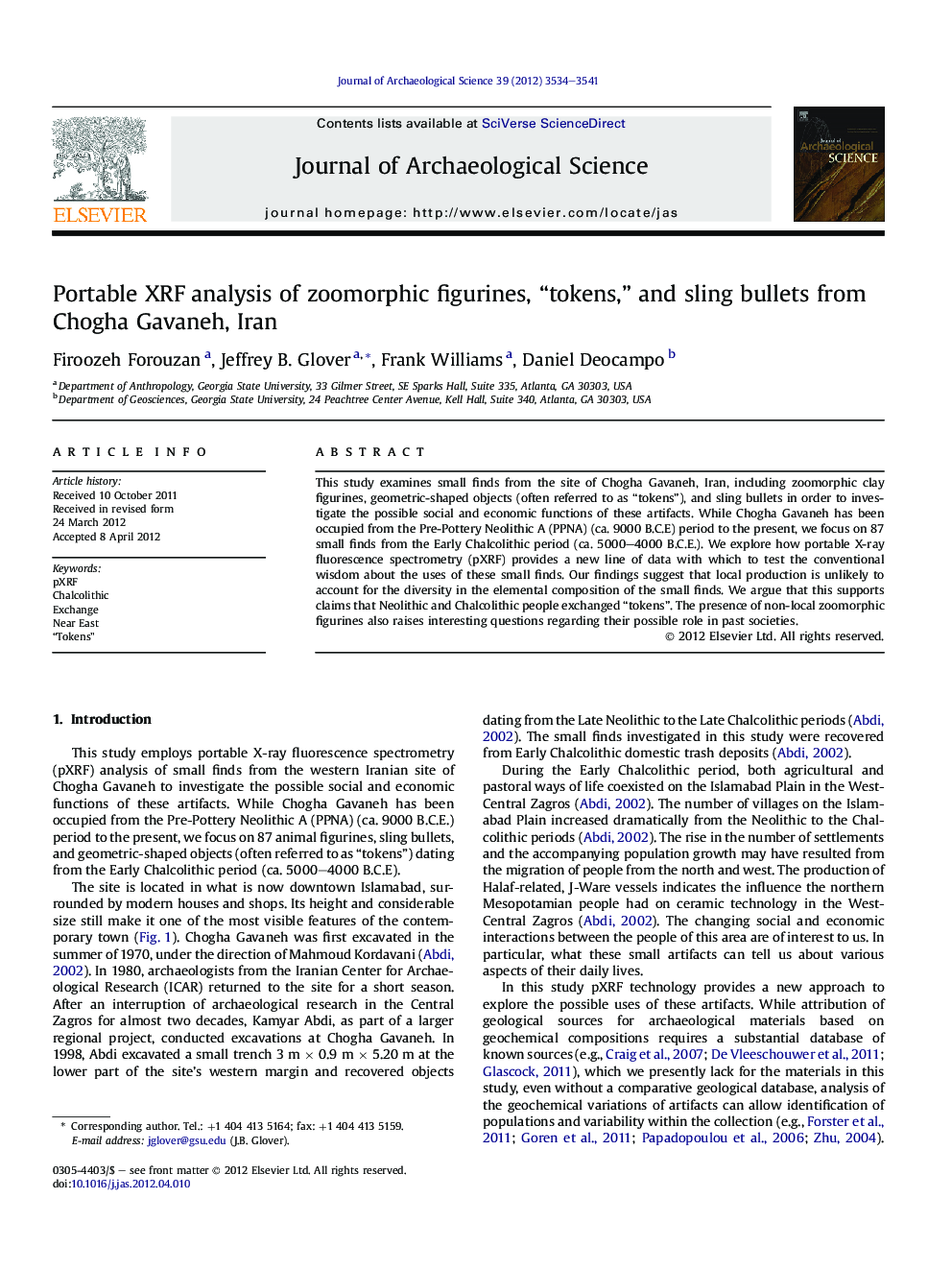| کد مقاله | کد نشریه | سال انتشار | مقاله انگلیسی | نسخه تمام متن |
|---|---|---|---|---|
| 1035646 | 943861 | 2012 | 8 صفحه PDF | دانلود رایگان |

This study examines small finds from the site of Chogha Gavaneh, Iran, including zoomorphic clay figurines, geometric-shaped objects (often referred to as “tokens”), and sling bullets in order to investigate the possible social and economic functions of these artifacts. While Chogha Gavaneh has been occupied from the Pre-Pottery Neolithic A (PPNA) (ca. 9000 B.C.E) period to the present, we focus on 87 small finds from the Early Chalcolithic period (ca. 5000–4000 B.C.E.). We explore how portable X-ray fluorescence spectrometry (pXRF) provides a new line of data with which to test the conventional wisdom about the uses of these small finds. Our findings suggest that local production is unlikely to account for the diversity in the elemental composition of the small finds. We argue that this supports claims that Neolithic and Chalcolithic people exchanged “tokens”. The presence of non-local zoomorphic figurines also raises interesting questions regarding their possible role in past societies.
► We focus on 87 small finds from the Early Chalcolithic period (ca. 5000–4000 B.C.E).
► pXRF of ceramic artifacts – use of an InnovX α−4000 hand-held device.
► Presence of non-local, small finds supports their use in exchange systems.
Journal: Journal of Archaeological Science - Volume 39, Issue 12, December 2012, Pages 3534–3541